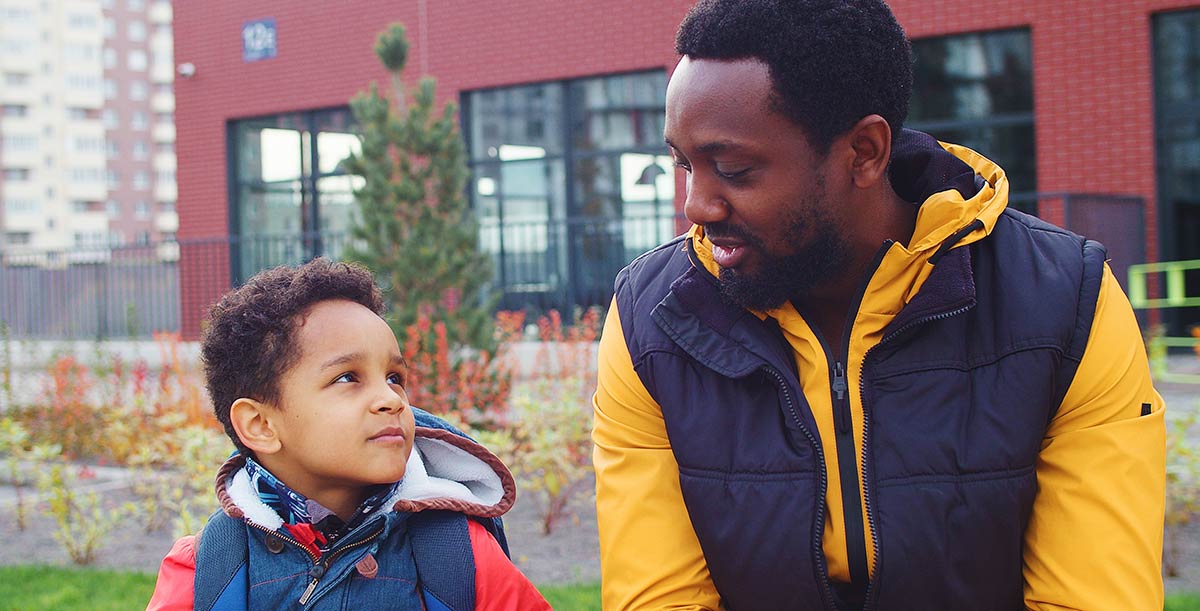Asking for Help
Introduction
It takes courage for a little person to ask a big person for help—or even to ask for permission to use the bathroom. You won't be able to advocate for your soon-to-be kindergartener during the school day, but there's a lot that you can do now to help your child ask for help when the school year begins.

Activity
When your child enters school, there will be many new adults to listen to, talk to and turn to for assistance. But asking for help is learned behavior, so start working with your child now so that he or she can become an effective self-advocate.
- Encourage your child to talk to trusted adults whenever possible. Family members, friends and neighbors are a great place to start.
- Send your child over to a trusted neighbor's house to borrow an egg, a cup of sugar or a magazine.
- Encourage your child to order a meal at a restaurant or say “Hello” and “How are you?” to the receptionist at the doctor's office or the cashier at the grocery store.
Tell your child that asking for help makes the other person feel like a trusted friend—and it often makes the friendship stronger.
Former President Barack Obama once said, “Don't be afraid to ask for help when you need it. I do that every day. Asking for help isn't a sign of weakness. It's a sign of strength.”
Role play with your child while placing a pretend call to order a pizza or make a doctor's appointment for their stuffed animal. Teach your child how to ask someone what their name is or ask about a favorite color or ice cream flavor.
Teach your child to do these three things when asking for help:
- Look at the person.
- Explain the kind of help that is needed. Is there something that you don't understand? Do you need something specific?
- Thank the person for helping.
Role play different scenarios in which your child might need help. Pretend to be a teacher or a school aide. If your child makes a general request such as "Can you please help me?" encourage your child to be more specific about the kind of help that is needed. Offer up some examples, such as:
- "I need help finding the bathroom/water fountain/etc."
- "Can you help me cut this piece of paper?"
- "I had a bathroom accident. Can you help me find my extra clothes?"
- "I don't feel good. Can you call my mom?"
- "I fell and hurt myself. Can you help me?"
- "I don't like this snack. But I'm hungry. Can I have something else?"
Getting help when it's needed is an essential kindergarten skill. With some advance coaching, your child can be an effective self-advocate—and you'll feel more confident that your child's needs are being met during the school day!
